hankyoreh
Links to other country sites 다른 나라 사이트 링크
[Photo essay] The ongoing struggle for reparations for victims of Japan’s forced labor mobilization
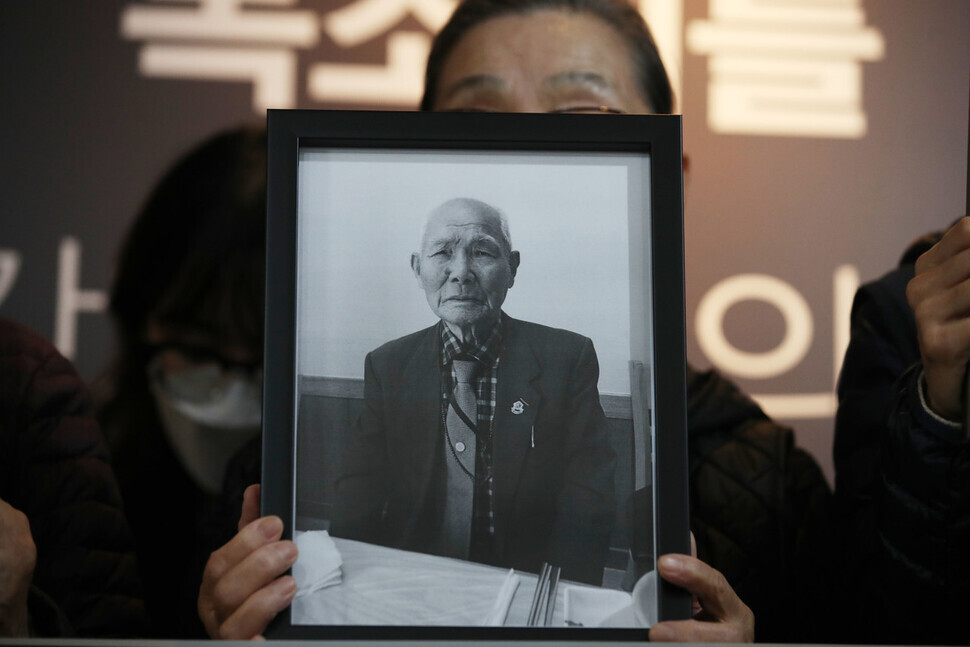
In October 2018, South Korea’s Supreme Court finalized its judgment on compensation for victims of forced labor under Japanese colonial rule. But three years later, the victims are still waiting for an apology and compensation from Japan.
A press conference was held by victims and civic organizations on Thursday at the Museum of Japanese Colonial History in Korea in Seoul’s Yongsan District to mark the third anniversary of the Supreme Court ruling. Participants at the press conference that day urged Japan and the companies involved in the mobilization of forced labor to apologize to the victims and to provide compensation.
“History should not be taken so lightly.”
“If Japan wants the forced labor victims of Mitsubishi Heavy Industries and Nippon Steel, people who have been pursuing legal action between 22 and 26 years, to disappear, then that wish may well come true,” said Lee Guk-eon, the leader of an organization representing victims of forced labor.
He continued, saying that “even if the victims disappear, this problem will not be over.” He urged Japan to change its attitude, saying, “In fact, Korea-Japan relations will worsen, and the levels of distrust between Korean and Japanese people will increase.”
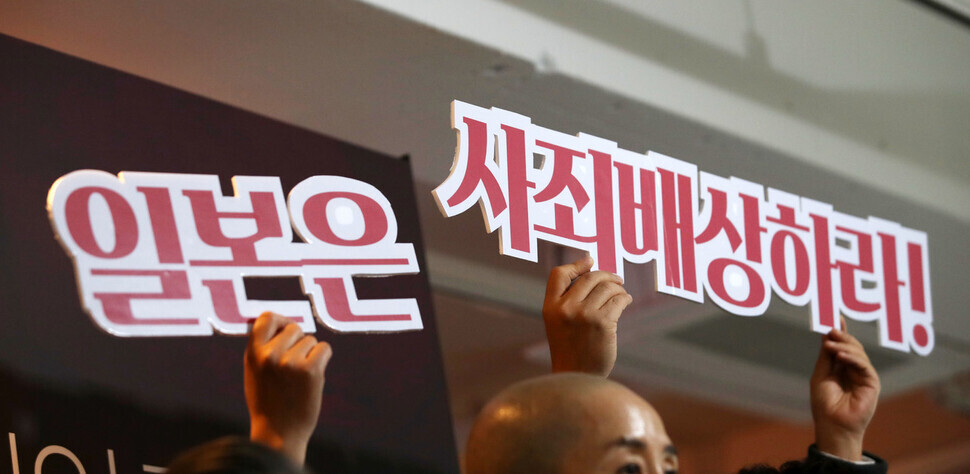
Regarding Mitsubishi Heavy Industries’ appeal to a South Korean court’s order to seize its assets, including six patent rights and two trademark rights, Lee said that “in the absence of a sincere apology, the victims have no intention of postponing their legal action.”
On Nov. 29, 2018, South Korea’s Supreme Court ruled that "Mitsubishi should pay between 100 million to 150 million won in compensation to each plaintiff.” That comes to around US$86,000 to US$128,000.
Mitsubishi, however, maintains that the issue of compensation was settled back in 1965 through the Treaty on Basic Relations between Japan and the Republic of Korea.
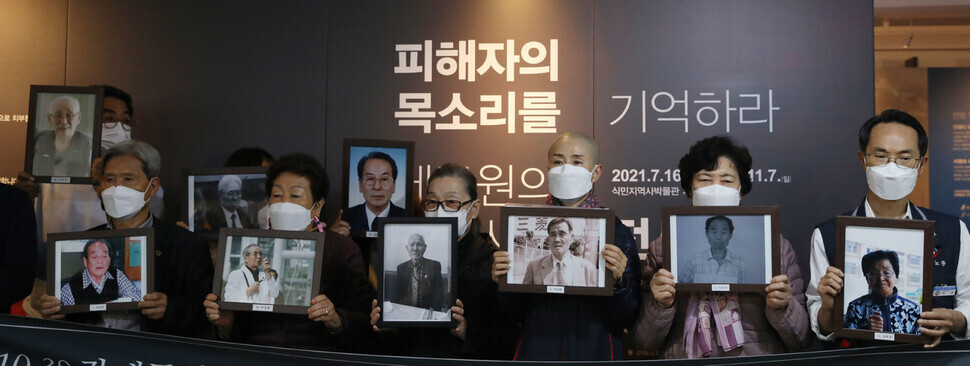
The museum is currently showing a special exhibit reflecting the stories of 19 victims of forced labor during the Japanese colonial era. The exhibition, titled “Remember the Voice of Victims, Remember the History of Forced Labor,” started in July and will run until Nov. 7.
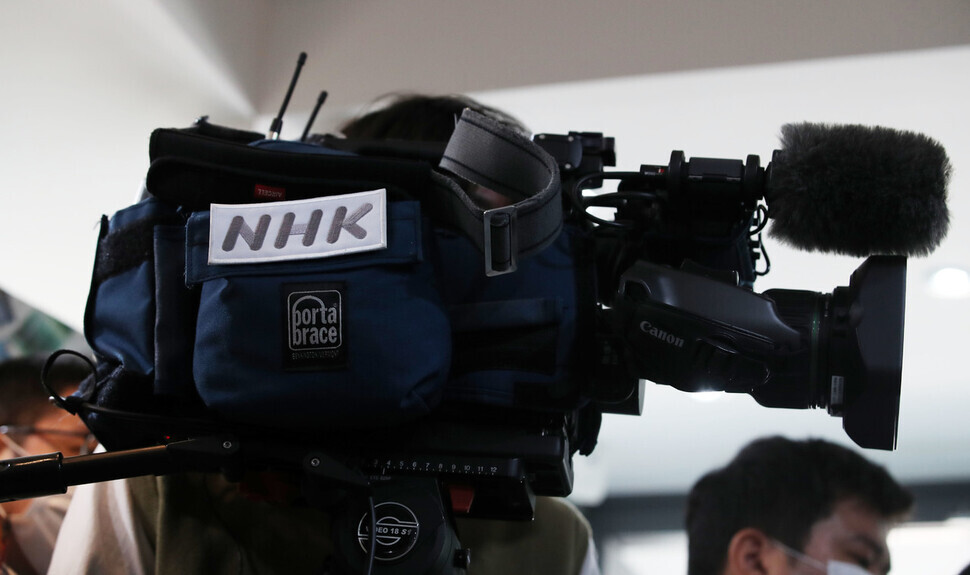
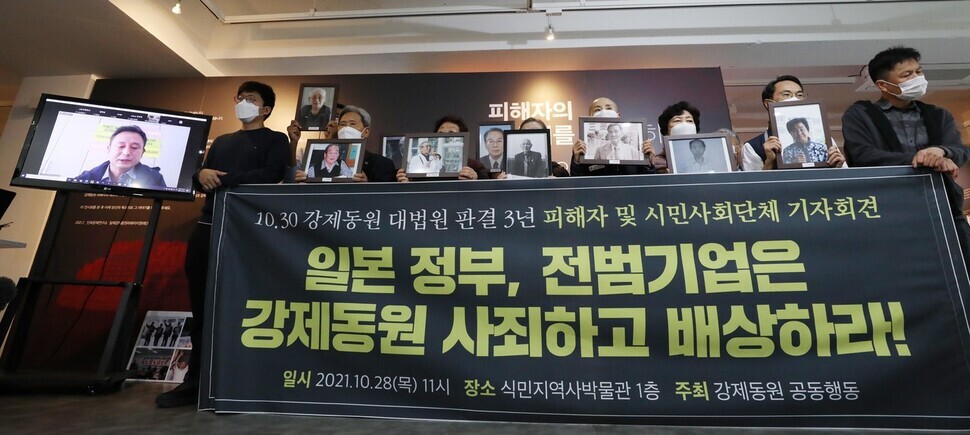
By Kim Hye-yun, staff reporter
Please direct questions or comments to [english@hani.co.kr]

Editorial・opinion
![[Column] Season 2 of special prosecutor probe may be coming to Korea soon [Column] Season 2 of special prosecutor probe may be coming to Korea soon](https://flexible.img.hani.co.kr/flexible/normal/500/300/imgdb/original/2024/0426/3317141030699447.jpg) [Column] Season 2 of special prosecutor probe may be coming to Korea soon
[Column] Season 2 of special prosecutor probe may be coming to Korea soon![[Column] Park Geun-hye déjà vu in Yoon Suk-yeol [Column] Park Geun-hye déjà vu in Yoon Suk-yeol](https://flexible.img.hani.co.kr/flexible/normal/500/300/imgdb/original/2024/0424/651713945113788.jpg) [Column] Park Geun-hye déjà vu in Yoon Suk-yeol
[Column] Park Geun-hye déjà vu in Yoon Suk-yeol- [Editorial] New weight of N. Korea’s nuclear threats makes dialogue all the more urgent
- [Guest essay] The real reason Korea’s new right wants to dub Rhee a founding father
- [Column] ‘Choson’: Is it time we start referring to N. Korea in its own terms?
- [Editorial] Japan’s rewriting of history with Korea has gone too far
- [Column] The president’s questionable capacity for dialogue
- [Column] Are chaebol firms just pizza pies for families to divvy up as they please?
- [Column] Has Korea, too, crossed the Rubicon on China?
- [Correspondent’s column] In Japan’s alliance with US, echoes of its past alliances with UK
Most viewed articles
- 1Is Japan about to snatch control of Line messenger from Korea’s Naver?
- 2‘We must say no’: Seoul defense chief on Korean, USFK involvement in hypothetical Taiwan crisis
- 3S. Korea “monitoring developments” after report of secret Chinese police station in Seoul
- 4The dream K-drama boyfriend stealing hearts and screens in Japan
- 5Division commander ordered troops to enter raging flood waters before Marine died, survivor says
- 6[Editorial] New weight of N. Korea’s nuclear threats makes dialogue all the more urgent
- 7No good, very bad game for Korea puts it out of Olympics for first time since 1988
- 8[Column] ‘Choson’: Is it time we start referring to N. Korea in its own terms?
- 9‘Weddingflation’ breaks the bank for Korean couples-to-be
- 10[Column] Season 2 of special prosecutor probe may be coming to Korea soon